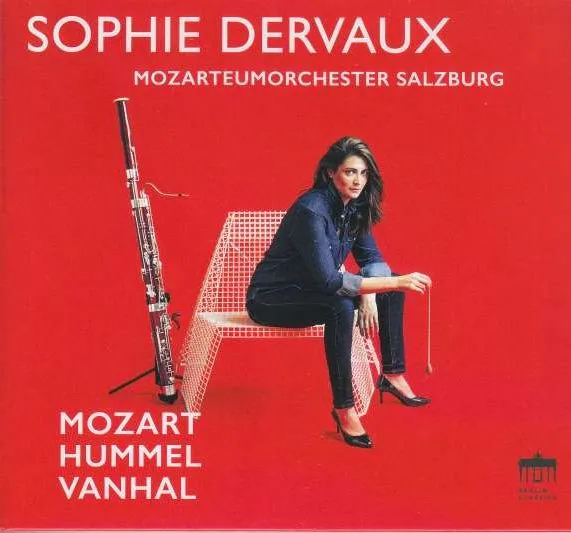
Hummel • Mozart • Vanhal Hummel: Bassoon Concerto; Mozart: Bassoon Concerto; Vanhal: Bassoon Concerto No. 2 Sophie Dervaux (bassoon); Mozarteumorchester Salzburg Berlin Classics 0302341BC 58:54 mins
Mozart was the greatest composer ever to write one, so his Bassoon Concerto has inevitably remained the core work of its repertoire. Yet he was only 18 when he composed it and it is relatively unsubtle compared with his later piano or wind concertos. But then, as the Vienna Philharmonic’s bassoonist Sophie Dervaux writes in the booklet notes, the 18th-century bassoon itself was a limited, uneven instrument, not to be improved until the 1830s. In her vivacious new recording with the warm-toned Orchestra of the Mozarteum Salzburg, which she also directs, she wields a full-toned modern bassoon with brilliance and sensitivity, though some listeners might prefer a slightly thinner-toned, more reedy sounding instrument in this music.
As a child prodigy, Johann Nepomuk Hummel was tutored by Mozart, and continued to compose in a kind of loosened, romanticised Mozart style. His three-movement Grand Concerto in F major dates from around 1805. Although larger in scale and more virtuosic than the Mozart, charm predominates over grandeur and Dervaux brings an irresistible lilt to its country-dance finale. Johann Baptist Vanhal was respected by both Mozart and Haydn. His vast output is still only partly published and this recording is apparently the first ever of his Concerto No. 2, in which trumpets and drums in the outer movements bring a genuine touch of grandeur. Floridly written for the soloist, it’s an attractive addition to the 18th-century repertoire.
Bayan Northcott
More reviews